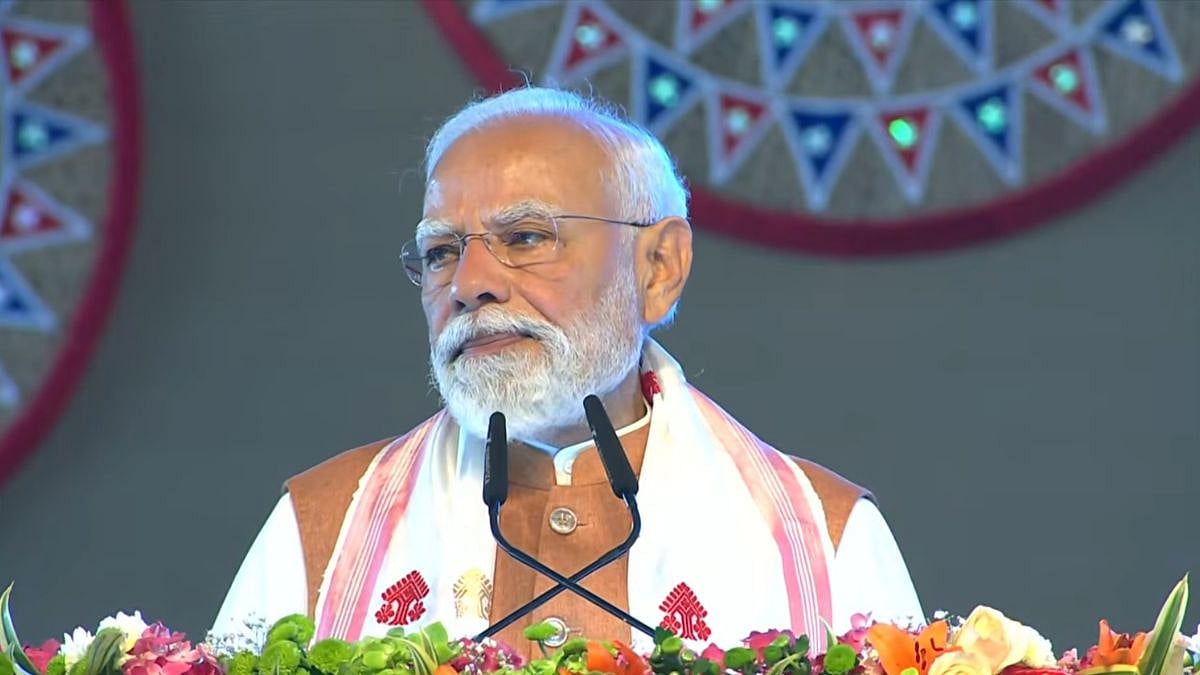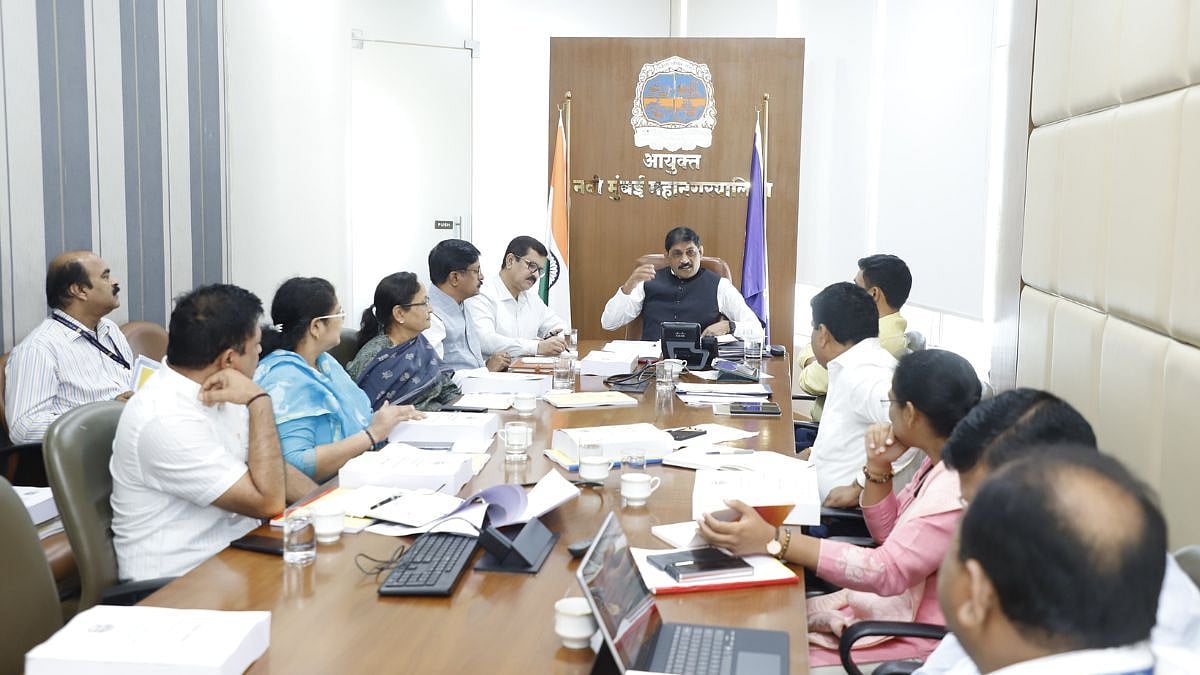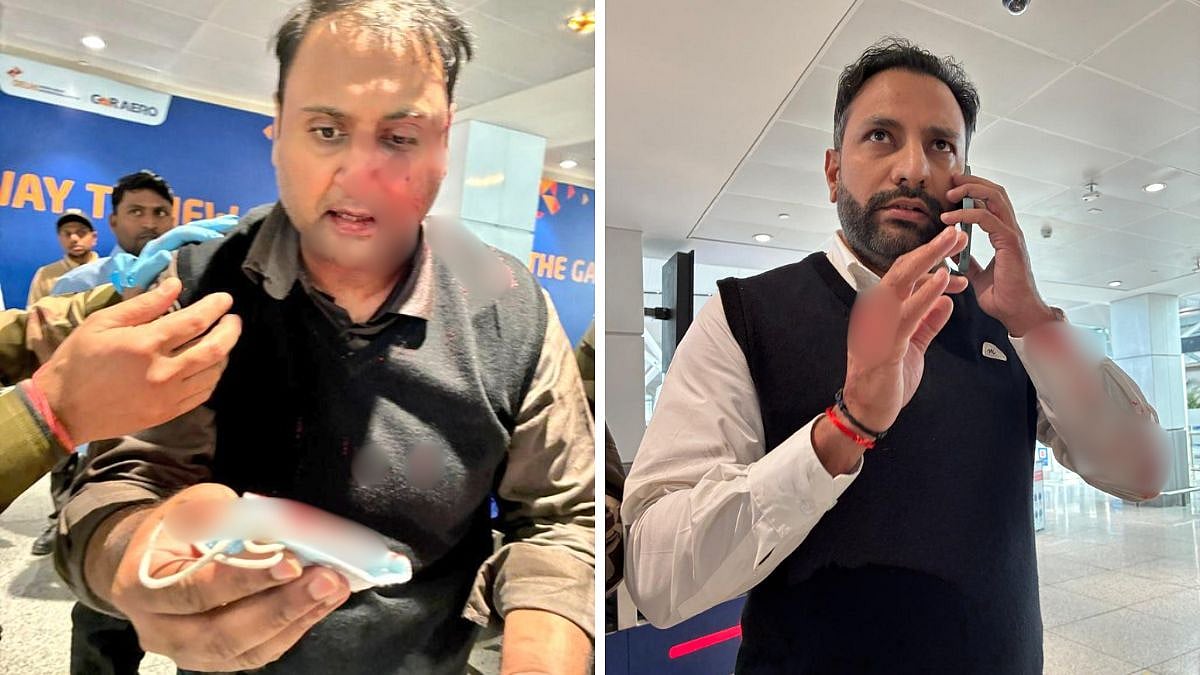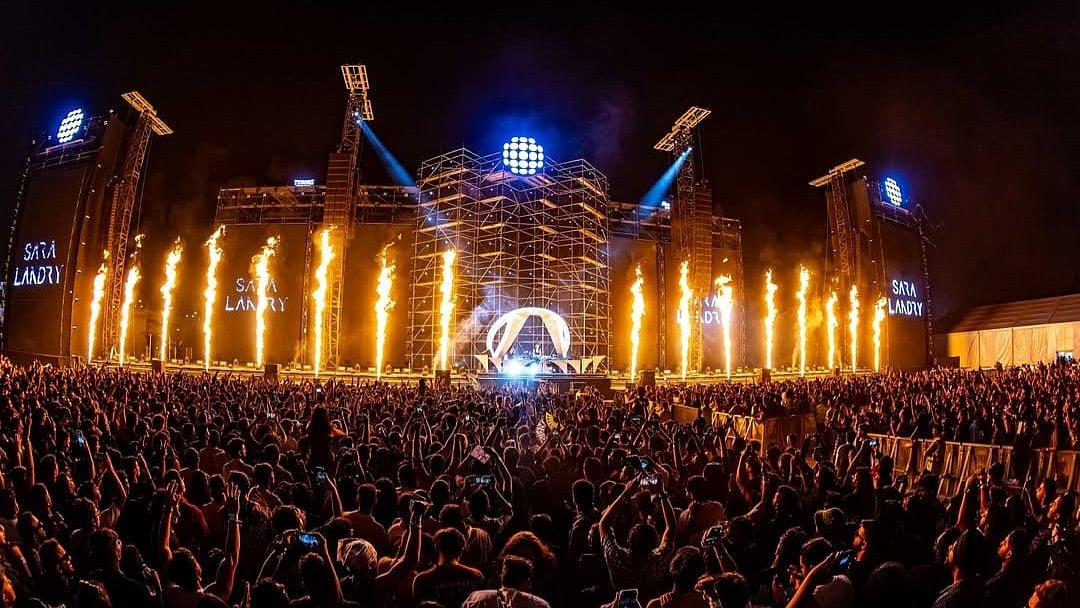Maharashtra boasts of a rich tapestry of folk music as it’s cultural legacy, and many folk artists who have taken forward their traditional art form to forthcoming generations. One such artist is the Sangeet Natak Academy Awardee Nandesh Umap, who has taken the folk music of Maharashtra to global heights.
Nandesh, recently, launched a Gondhal written by Shrirang Godbole and composed by Rahul Ranade at Shiv Sena (UBT) press conference.
Nandesh shares his journey into the world of folk music, devotion and beliefs, which he recently introduced to the Gen Next in an intriguing workshop titled ‘Folk Vocals of Maharashtra'. The workshop was part of the Virasat series organised by Spic Macay held at Nalanda Public School in Mumbai.
Nandesh began his training at an early age of seven from his father, the legendary folk singer Late Loksahir Vithal Umap, who was also the recipient of the prestigious Sangeet Natak Academy Award.
Talking about his initiation into the art form he says, “My taleem began naturally with baba (father), who would sit with his harmonium on stage and ask me to sing after him the song Mhaza Aaicha Gondhal. He would teach me the nitty gritties of voice production, voice modulation, harkats and murkis. He would teach me the correct bhava of the composition, be it valour or devotion depending on the composition, which is the essence of our music.”
Nandesh proudly shares about his musical legacy. “I represent the Umap Gharana, which has its own style of gayaki incorporated with a lot of layakari, that makes us distinct from other folk artists. My grandfather and great grand father sang the Powada. My father spent almost 60 years of his life dedicated to carrying forward the traditional folk music of Maharashtra. Before him, many Powadas were written in Marathi, but he was the first to write Powada in Hindi.”

Powada, a ballad, was a popular musical genre during the 17th century that glorifies the heroic deeds of the then leaders and kings like Chhatrapati Shivaji Maharaj. Powada represents the Shaurya Gana (warrior songs) sung by the Shahirs who were composers and singers. They sang the Powada aloud with a duff in their hands, in the battle field, not just to entertain, but also to motivate soldiers.
Nandesh explains, “Before the Shaurya Gana Powadas, there were devotional Powadas, namely Bhedic Powada, Shuniyacha Powada and Janajagruti Powada. My grandfather used to sing Shuniyacha Powada, which he unfortunately could not pass it down to my father, because of his demise.”
Some of the earliest Powadas are about Shivaji’s encounter with Afzal Khan like Afzal Khanacha Vadha (The Killing of Afzal Khan) written by Agnidas and Powada Tanaji Malusare written by Tulsidas. Some of the celebrated Shahir poets of the Maratha rule were Ram Joshi, Anant Phandi, Honaji Bala, and Prabhakar who composed Powadas. There are also devotional Powadas like Baji Pasalkar written by Yamaji Bhaskar that are mentioned in Dnyaneshwari.
Throwing light on the types of folk music Nandesh says, “There are musicians who present various folk forms like Lavani, Shahiri in which Gaana and Powda are sung. Bahurangi Tamasha, Baithakichi Lavani are similar to Thumri presentation of Lucknow, but is sung with bhav (expression) and abhinaya (enactment). For example, in the song Nesali pitambar zari, the performer will sing with abhinaya to depict a maiden adorning a beautiful saree. It’s mostly performed by women, but some male artists also do it without abhinaya. Some folk songs of Maharashtra are similar to the folk songs of Uttar Pradesh. The devotional folk song of Maharashtra, Khelatana rang bai holicha holicha, is dedicated to Lord Krishna that is akin to Krishna Leela and Holi songs in North India.”
He adds, “There are many folk genres like Gondhal, Tumbdi, Gaan Powada, Lavani, Waghya Murali, Dangar, Ovi and Koli geet. In fact, my father was the first person to perform all these elements of folk traditions in a three hours performance, while he changed costume in accordance with each form in between every song.”

Nandesh’s father, Vithal Umap, was also the first person to write Koli songs, which was first introduced in AIR and Doordarshan in 1960, he being the founder member of Koli geet community. “Even Koli community did not know about their own songs. There are many fisher men communities Koli of Bengals, Goa and Maharashtra, who live on the seashore. My father composed a Koli song Ye dada awar ye. He learnt the Koli language, then wrote and composed the songs in it, himself being a non-Koli.”
Elaborating on the devotional folk songs, “Gondhal is sung at the jagran of Devi Ma, all night long. Devi has many names like Tulja Bhawani, Renuka Mata and Saptashrungi which are the shaktipeeths of Maharashtra. While there is another form of jagran called the Waghya Murli, which is sung for the Khandoba Bhagwan, who is an avatar of Bhagwan Shankar and Krishna. Both male and females sing the song Malhar wari motiyana dhyavi bharun asking the lord to fill their lives with pearls.”
So what’s the philosophy and the belief system behind the folk traditions, he explains, “Before we start the jagran katha we invoke the Lord with these songs. Gaana Powada the invocation song begins with the shloka Deva Gajanan Gana to invoke Lord Ganesha. Gaana is also sung before Gondhal and Tamasha in the beginning as invocation song to invite all Devis and Devtas to the Gondhal to bless all. To invoke Vitthala (Vithoba) of Pundharpur to come to Gondhal, the song says: Pundharpurcha Vithuraya Gondharayala awe. Only the male artists called Gondari sing the Gondhal dressed in the special costume angarkha. They hold a kankada, a jyoti or a burning lamp in the hand and dance and sing all night to do jagran of Devi. These songs depict the tales of Mahishasur vadha describing the Devi’s power.”
Throwing light on his workshop he said, “I taught the children a Gaana Powada composition Adhi Naman Devala Karto and a short seven-eight minute piece of Gondhal composition Namo Adimaya Bhagwati Anadi Siddhi. Since teaching rural music needs time, you can’t teach it in two-three days, so I just gave them an idea of what and how the folk music is."
He adds, “I have been involved with spic macay for many years. During Covid-19 pandemic, we did online workshops. I have been the first Marathi folk performer to take workshops in Shakespeare’s village in UK. Not many people know about Indian music, especially our Marathi folk music, which has a rustic flavour. People think folk music is easy and take it lightly, but it’s not easy.”
Talking about the collaboration between Spic Macay and the Nalanda Public School Nandita Khanna Principal of Nalanda Public school said, "Spic Macay is doing the most wonderful thing. I believe that these initiatives are really helping to bring our own culture to the children of our country, which is missing today, especially in cities where all they get is Bollywood Music.









